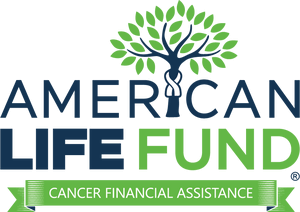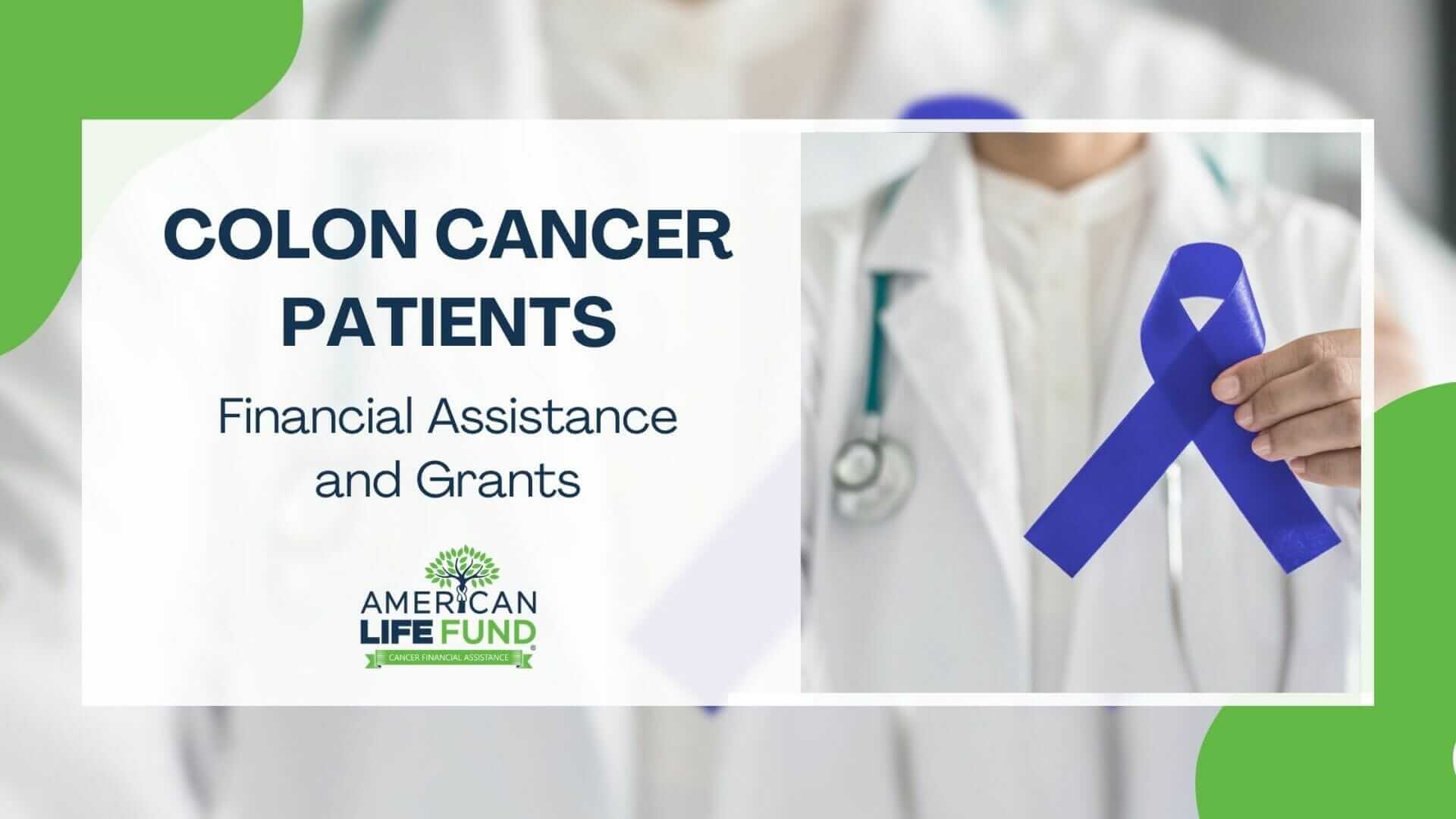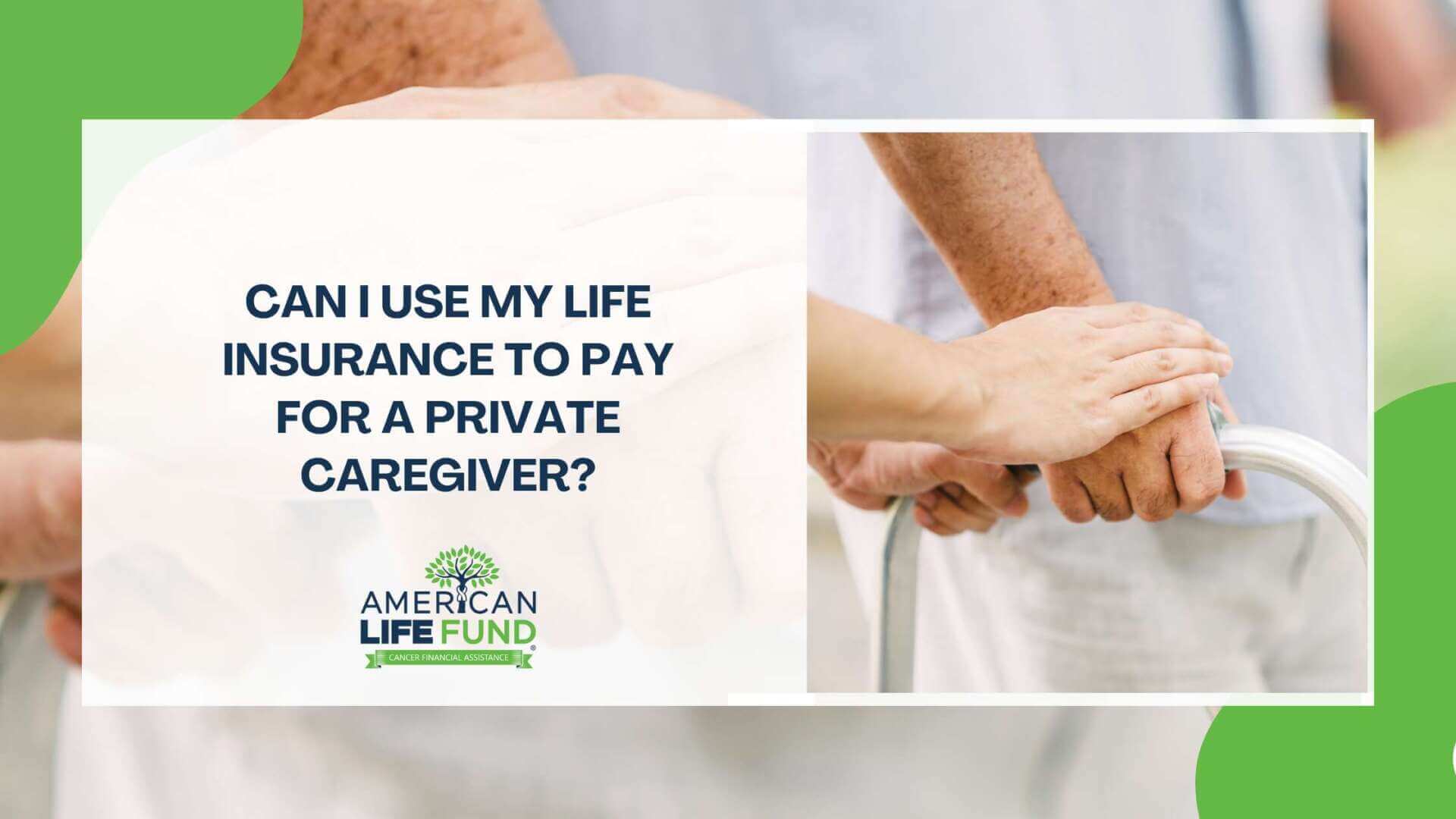Colon cancer brings more than a diagnosis—it brings bills, paperwork, and choices that no one should face alone. A single cancer treatment cycle can cost thousands. Surgery, chemotherapy, medications, scans, and ongoing appointments add up fast. Even with health insurance, the financial burden can grow overwhelming, especially when co-payments, travel, and medical supplies aren’t fully covered.
Many cancer patients find themselves needing help not only with the direct costs of care but also with daily life—transportation, housing, childcare, meals. And for families supporting someone with colon cancer, financial strain can ripple outward quickly.
American Life Fund lays out specific financial assistance programs, what each one offers, how to access them, and who qualifies. Whether you’re actively fighting colon cancer, newly navigating a cancer diagnosis, or helping someone through treatment, the resources below are designed to provide not just direction—but real, usable relief.
Government Assistance Programs
When you’re managing cancer treatment, timing matters. Government programs don’t always move quickly, but the right ones can offer steady, long-term help with medical and living expenses. Here’s what’s available, who qualifies, and what each program can actually do.
Medicaid
Medicaid covers more than hospital visits. For eligible patients, it can pay for chemotherapy, prescription medications, scans, and even home health care. In many states, Medicaid also covers transportation costs for medical appointments and certain medications not picked up by other plans.
What it helps with: Treatment, hospital stays, co payments, prescriptions, and sometimes in-home support
How to apply: Through your state’s Medicaid website or HealthCare.gov
Medicare
If you’re 65 or older or have a qualifying disability, Medicare helps cover cancer related costs like surgery, diagnostic tests, and ongoing treatment. It doesn’t always cover everything—but it’s a strong foundation.
What it helps with: Doctors’ appointments, outpatient cancer care, hospital stays, hospice
How to apply: Visit Medicare.gov or call 1-800-MEDICARE
Supplemental Security Income (SSI)
SSI helps low-income cancer patients who are unable to work due to illness. If your cancer diagnosis has disrupted your job, this program offers a monthly cash benefit to help cover rent, groceries, and daily essentials.
What it helps with: Monthly cash support for low-income individuals
How to apply: Go to SSA.gov or call 1-800-772-1213
Social Security Disability Insurance (SSDI)
If you’ve worked and paid into Social Security, you may qualify for SSDI. It’s for people whose life-threatening health condition keeps them from working. Stage III and IV colorectal cancer often meets SSDI criteria. You’ll need medical records and proof of your inability to work full-time.
What it helps with: Monthly disability benefits, automatic Medicare eligibility after two years
How to apply: SSA.gov or 1-800-772-1213
Supplemental Nutrition Assistance Program (SNAP)
SNAP isn’t just about food—it’s about freeing up money for other resources. For those in active treatment, shopping and budgeting can get hard. SNAP gives monthly funds on a reloadable card to spend at most grocery stores, helping patients focus resources on medical costs.
What it helps with: Food and nutrition assistance for low-income households
How to apply: Visit your state’s SNAP office or go to fns.usda.gov/snap
Temporary Assistance for Needy Families (TANF)
TANF supports families facing financial hardship. If your household is impacted by colon cancer—whether you’re the patient or the primary caregiver—TANF can provide short-term income, food, childcare support, and more.
What it helps with: Monthly cash aid, food, childcare, and transportation
How to apply: Through your state’s Department of Human Services
Low-Income Home Energy Assistance Program (LIHEAP)
When you’re budgeting for gas, groceries, and co-payments, heating and cooling bills shouldn’t be the tipping point. LIHEAP helps cover utility bills and emergency energy-related needs—particularly for people with life-threatening conditions who rely on temperature-sensitive medications or equipment.
What it helps with: Utility payments, weatherization, and emergency heating/cooling aid
How to apply: acf.hhs.gov/ocs/programs/liheap
Viatical Settlements and Why American Life Fund Is Your Choice
When someone has a life-threatening illness, time matters—so does financial stability. A viatical settlement allows you to convert an existing life insurance policy into a large lump-sum cash payment, giving you the freedom to afford medical bills, living expenses, alternative treatment, , and everything in between, without draining savings or asking family for help.
Where other financial options delay, complicate, or fall short, American Life Fund delivers simplicity, speed, and dignity.
Why Choose a Viatical Settlement Through American Life Fund
Immediate funds, no delays: Once approved, we deliver the cash quickly—often within days—not weeks or months. That money can be used however you need: nursing care, medical supplies, or even experiences with your loved ones. There are no restrictions on use.
You keep your privacy: The process is completely confidential. You’re not applying for charity or asking for approval from an insurance company or community organization. It’s a direct exchange that respects your decisions and time.
No out-of-pocket costs: There are zero fees to apply. You don’t pay anything to begin the process or complete it—ever. There’s no risk in getting a quote.
You stop paying premiums: Once you accept the settlement and sell your policy, you are no longer responsible for ongoing insurance coverage or premium payments. That’s one less bill and one less worry.
We are fast, personal, and experienced: We specialize in working with people facing serious illness. Our team is trained to keep paperwork to a minimum, get straight to the point, and treat you with the utmost care and respect.
Eligibility Criteria: Simple and Transparent
American Life Fund makes eligibility straightforward. To qualify for a viatical settlement:
- You must have a life-threatening illness such as colon cancer, ALS, Alzheimer’s, or another advanced diagnosis.
- You own a life insurance policy valued at $200,000 or more. The policy must be at least two years old.
- We accept most policy types, including term, whole, universal, and group life insurance.
- You must be the legal policyholder, or have permission to act on behalf of the policyholder.
If you meet these criteria, you’re eligible to receive between 50% and 70% of the policy’s face value, depending on the specifics of your diagnosis and policy details. See if you qualify!
Nonprofit Organizations Offering Financial Help
Nonprofit organizations play a major role in helping cancer patients manage day-to-day expenses that insurance doesn’t cover. These groups provide more than sympathy—they offer grants, copay assistance, travel funds, and support tailored specifically to colon cancer and colorectal cancer patients.
Here’s what each one provides and how to access it.
Colorectal Cancer Alliance
The Colorectal Cancer Alliance supports patients with direct grants, transportation help, and connections to oncology social workers. They also offer educational tools and local resources to help navigate everything from treatment centers to support services.
What it helps with: Financial grants, navigation support, and travel-related costs for colorectal cancer patients
How to apply: Visit ccalliance.org or call 1-877-422-2030
Patient Access Network (PAN) Foundation
PAN helps underinsured people pay for the health insurance premiums, deductibles, and co payments that stack up during active treatment. They focus on cancer types with high treatment costs—including colon cancer—and fund only for eligible, approved conditions.
What it helps with: Copays, premiums, and deductibles for eligible patients
How to apply: Go to panfoundation.org or call 1-866-316-7263
CancerCare
CancerCare provides small grants to help with transportation costs, home care, medication copayments, and even childcare. They also offer counseling and workshops—especially valuable for young adults navigating fighting cancer while building their lives.
What it helps with: Travel, home services, co-pays, and child-related expenses
How to apply: Visit cancercare.org or call 1-800-813-HOPE (4673)
LIVESTRONG Foundation
LIVESTRONG offers specialized services for people navigating the long-term impacts of cancer, including fertility services. Their LIVESTRONG Fertility program can be especially valuable for young adults with life-threatening diagnoses who want to plan ahead.
What it helps with: Fertility preservation, family planning costs, peer support
How to apply: Learn more at livestrong.org or call 1-855-220-7777
Financial Assistance Program for Cancer Patients (FAPCP)
FAPCP gives direct financial help to colon cancer patients in need. The funds are flexible and can go toward anything tied to your cancer diagnosis—including transportation, rent, groceries, or unexpected medical supplies.
What it helps with: Treatment expenses, daily needs, and non-medical costs
How to apply: Visit fapcp.org or email info@fapcp.org
Modest Needs
Modest Needs offers emergency grants to keep families from slipping into a long-term financial crisis. They often assist with bills like rent, utilities, and health insurance premiums during cancer treatment.
What it helps with: One-time emergency grants for working households in crisis
How to apply: Apply at modestneeds.org
The Salvation Army
Through regional branches, The Salvation Army offers assistance with rent, utilities, groceries, and travel expenses. They also provide support referrals for other resources, including access to local hospitals and care navigators.
What it helps with: Immediate needs for housing, bills, and basic living support
How to apply: Use the search tool at salvationarmyusa.org to find your local office
Transportation Assistance
Colon cancer care often involves dozens of trips—to treatment centers, imaging clinics, surgical appointments, and follow-up exams. But transportation costs can add up quickly: gas, tolls, parking, airfare, and sometimes lodging.
These programs make sure getting to treatment isn’t the thing that stands in the way of receiving it.
American Cancer Society: Road to Recovery
This program connects patients with volunteer drivers who provide free rides to and from cancer-related medical appointments. In some cases, they may also help with gas cards when volunteers aren’t available.
What it helps with: Local transportation to treatment and doctor visits
How to access: Contact your local ACS office or visit cancer.org/roadtorecovery
Corporate Angel Network
For those needing to travel long distances for cancer treatment, Corporate Angel Network arranges free flights on available seats aboard corporate jets. There’s no financial requirement—just a verified cancer diagnosis and a confirmed appointment at a recognized treatment center.
What it helps with: Free air travel to and from major treatment facilities
How to access: Call 1-866-328-1313 or visit corpangelnetwork.org
Angel Flight
Angel Flight matches patients with private volunteer pilots who provide transportation to treatment centers across multiple states—especially useful in rural areas or for specialized procedures that aren’t available locally.
What it helps with: Free regional flights for medical care
How to access: Visit angelflight.com
Colorectal Cancer Alliance: Blue Hope Financial Assistance
In addition to grants for medical costs, the Colorectal Cancer Alliance also offers help with transportation, including rides to chemotherapy, appointments, and follow-ups.
What it helps with: Rideshare, travel reimbursement, and coordination
How to access: Go to ccalliance.org and search “Blue Hope”
Housing Assistance
A colon cancer diagnosis doesn’t pause the bills. In fact, housing costs often become harder to manage during active treatment, especially when work hours are reduced or stopped altogether. Whether you need help with mortgage payments, rent, or a place to stay near a treatment center, there are programs that offer more than advice—they offer relief.
HUD (Housing and Urban Development)
HUD offers several housing relief options, from reduced rent programs to mortgage payment assistance for homeowners facing hardship. The agency also works with local partners to provide temporary shelter and utility help.
What it helps with: Mortgage forbearance, rental relief, housing counseling
How to apply: Visit hud.gov and navigate to your state’s housing authority
Section 8 Housing Choice Vouchers
Section 8 provides eligible patients and their families with rental support based on income. These vouchers can be applied toward private rentals, giving patients the option to live closer to hospitals, family, or support services.
What it helps with: Long-term rental subsidies for low-income families and individuals
How to apply: Contact your local Public Housing Agency via hud.gov
Hope Lodge (American Cancer Society)
If traveling for cancer treatment, patients and a caregiver can stay at Hope Lodge for free. Locations exist across the U.S., often near major treatment centers, and include shared kitchen and lounge spaces designed to ease the stress of being away from home.
What it helps with: Free lodging during treatment
How to apply: Find a location near your hospital at cancer.org/hopelodge
Ronald McDonald House Charities
While traditionally known for helping families with sick children, many RMHC chapters now offer rooms for adult cancer patients or parents traveling for their own or a loved one’s treatment. Call ahead—availability and eligibility vary.
What it helps with: Temporary housing near hospitals
How to apply: Visit rmhc.org or contact your hospital’s social worker or case manager
Local Emergency Rental Assistance Programs
Many states and counties have emergency rental aid funds. These are ideal for those in short-term crisis—such as missing work due to chemotherapy or needing to relocate closer to a treatment center.
What it helps with: Short-term rental and utility support for families in treatment
How to find help: Search “[your state] emergency rental assistance” or call 2-1-1
Child and Elder Care Financial Support
Colon cancer doesn’t only affect the patient—it impacts everyone who depends on them. Whether it’s young children or aging parents, many families face additional strain trying to coordinate care while navigating a cancer diagnosis. Here are two programs that help ease that pressure.
Child Care and Development Block Grant (CCDBG)
The CCDBG helps low-income families pay for licensed child care services, so patients or caregivers can attend appointments, recover from treatment, or return to part-time work without interruption. Coverage varies by state but often includes subsidies for daycare or after-school programs.
What it helps with: Financial support for childcare during treatment
How to apply: Contact your state’s child care agency or visit acf.hhs.gov
Area Agencies on Aging (AAA)
Local AAA offices connect families with resources to care for elderly relatives, including meal delivery, transportation, and sometimes paid in-home support. They also help patients acting as primary caregivers to access support services or temporary relief while they focus on healing.
What it helps with: Elder care assistance, in-home support, caregiver relief
How to apply: Use the Eldercare Locator to find your nearest agency
Prescription & Treatment Assistance
Between prescription medications, infusion costs, and follow-up scans, cancer treatment creates a stack of bills that even good insurance may not fully cover. These programs reduce the out-of-pocket load, offering financial relief when you need it most.
Patient Access Network (PAN) Foundation
PAN covers the difference when insurance doesn’t—specifically helping underinsured people pay for co payments, deductibles, and health insurance premiums tied to their cancer care. Funds are available for eligible colon cancer patients, and applications are typically processed quickly online.
What it helps with: Copays, premiums, out-of-pocket treatment costs
How to apply: Visit panfoundation.org
NeedyMeds
NeedyMeds is a centralized search engine for patient assistance programs offered by pharmaceutical companies. You can look up your prescribed drugs and find out which programs provide them for free or at steep discounts.
What it helps with: Discounted or free medications for eligible patients
How to apply: Search at needymeds.org
Patient Advocate Foundation (PAF)
PAF doesn’t just help with medical supplies or certain medications—they assign a case manager to help you navigate insurance appeals, find grants, and avoid treatment disruptions due to cost.
What it helps with: Case management, co-pay help, and appeal support
How to apply: Visit patientadvocate.org
Fundraising and Crowdsourcing
Not every expense is covered by a program. That’s why many families turn to fundraising—both online and in their communities. It’s not just about donations; it’s about sharing your story and connecting with people who want to help.
GoFundMe and Other Online Platforms
Websites like GoFundMe, Fundly, and GiveSendGo make it easy to create a campaign, share your needs, and collect funds quickly. Whether you’re paying for chemotherapy, covering transportation costs, or bridging a rent shortfall, these platforms can raise thousands in just days.
What it helps with: Any cancer related costs, from treatment to daily living
Tip: Be clear, specific, and transparent in your story; link your campaign in social media and local community groups
Local Fundraisers and Events
For those with strong community ties, local fundraising still works. Bake sales, charity walks, and restaurant nights offer tangible ways for neighbors to pitch in. Many social workers or support organizations can help you plan or promote events.
What it helps with: Everyday expenses and large bills that pile up during active treatment
Tip: Partner with a local business, school, or church to expand reach and ease planning
Clinical Trials
For some patients, clinical trials offer access to advanced cancer treatment options not yet available through standard care. But they also offer something else: relief from certain cancer related costs.
Trials often cover the cost of the investigational drug, extra tests, and sometimes transportation or lodging—especially when you’re traveling to major treatment centers. Many hospitals and doctors actively refer eligible patients to open trials, and oncology social workers can help identify the right ones.
Where to Start
- National Cancer Institute (NCI): cancer.gov offers a searchable database of current trials by cancer type and location.
- ClinicalTrials.gov: A U.S. government-run search engine where you can filter by diagnosis, treatment stage, age, and geography.
- Patient Advocacy Groups: Organizations like the Colorectal Cancer Alliance often have curated trial listings and referral partners.
What Trials May Cover
- Investigational medications and lab work
- Extra imaging or tests not billed to your insurance
- Travel and lodging costs for out-of-town participation
Clinical trials aren’t just for last-resort care. They may offer access to promising therapies and support services while reducing out-of-pocket expenses.
A Smarter Way to Access Support Now
Programs help. Fundraising helps. But for some, time is limited and the gaps are too wide. At American Life Fund, we help patients with a life-threatening diagnosis access immediate cash through their life insurance policy—no loans, no waiting.
If you or a loved one is actively fighting colon cancer, this may be the financial solution that makes everything more manageable.
Learn more about viatical settlements and get a free offer estimate at American Life Fund.





